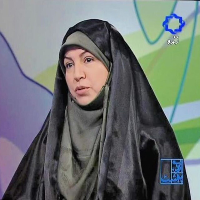Cognitive Components of Self-control in the Narrations of Imam Riḍā (as) by Content Analysis Method
Self-control is an individual's ability to voluntarily control internal processes and behavioral outputs, and the criterion for measuring self-control is compliance with the standards of Sharia and divine teachings. The purpose of this study is to identify and analyze the cognitive component of self-control in the words of Imam Riḍā (as) and determine the amount of attention to it. The research method is descriptive-analytical of the type of content analysis, and the unit of analysis is the content of the narration, and the research community is the narrations of Imam Riḍā (as) in the book Musnad al-Riḍā. Findings show that the cognitive component of self-control in the words of Imam Riḍā (as) includes 92 themes of narration and 30% of the total number of Raḍavī narrations. The cognitive component of "self-control" includes knowledge of the areas of self-control, familiarity with the factors that create self-control, familiarity with the effects of self-control and recognizing barriers to self-control. The result is that the cognitive dimension of self-control, in addition to affecting the emotional and behavioral dimension, leads to the growth of awareness and the development of intellectual skills, analysis and thinking in self-control, and ultimately human well-being.
-
The Three Meanings of "Nisyān" (Forgetfulness) in the Quran, Emphasizing the Connotative Meaning and Emotional Load in Collocations and Substitutions
Zohreh Akhavan Moghaddam*
Journal of Qur'anic Knowledge, Winter 2024 -
Thematic analysis of economic components in the network of narrations of Imam Reza (peace be upon him)
*, Fatemeh Baghani
International Journal of Imam Reza Contemporary sciences,




